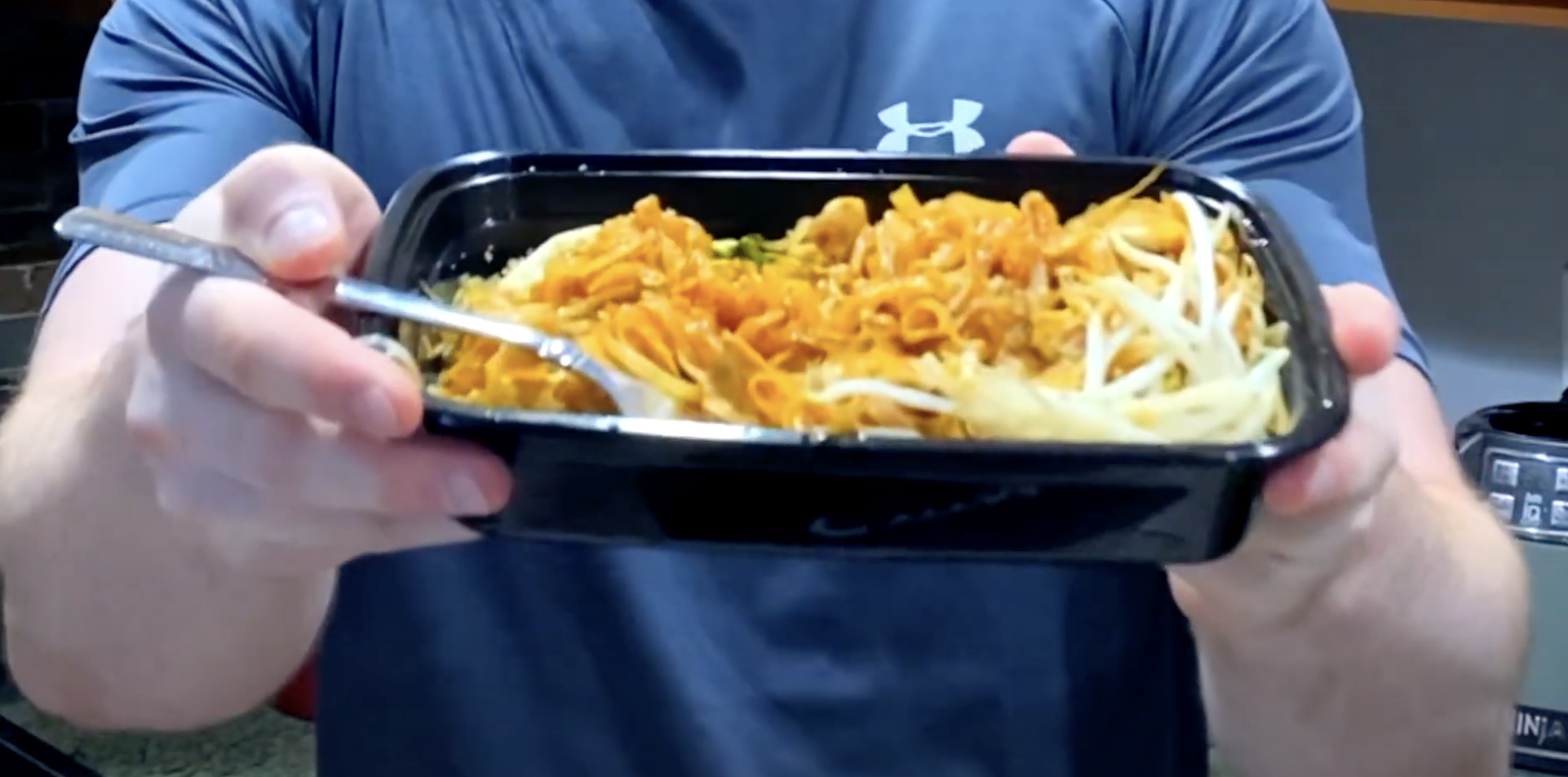Dosing for Chicken Pad Thai: Expert Advice from a T1D Dietitian

Thai cuisine is renowned for its unique blend of flavors, combining sweet, salty, spicy, and sour tastes into delectable dishes.
Among the many beloved Thai recipes, Chicken Pad Thai stands out as a favorite. This iconic dish comprises chicken, noodles, and a medley of ingredients that create a harmonious flavor profile.let's break it down to understand its impact on blood sugar. Let's dive right in!

Noodles
The noodles are the main source of carbohydrates in this dish. Based on the portion size shown in the video, it appears to be approximately two cups. Considering the density and weight, let's assume it's closer to two cups. Typically, one cup of Pad Thai contains around 62 grams of carbs. With a slightly smaller portion, we can estimate it to be around 100 to 110 grams of carbs.
Bean Sprouts and Chicken
While bean sprouts and chicken are essential components of Chicken Pad Thai, they contribute minimal carbohydrates to the meal. As a result, they do not significantly impact blood sugar levels.
Total Carbs: Considering the carbs from the noodles, we estimate that Chicken Pad Thai contains approximately 100 to 110 grams of carbs.
Protein and Fat Considerations
Now let's evaluate the protein and fat content and their potential impact on blood sugar.
Protein
The chicken in Chicken Pad Thai contributes a moderate amount of protein to the dish. While protein itself does not directly affect blood sugar levels, it can have a minor impact when consumed in large quantities. Protein takes longer to digest compared to carbohydrates, which means it can help slow down the absorption of glucose into the bloodstream. This can result in a more gradual rise in blood sugar levels compared to consuming carbohydrates alone.
However, in the case of Chicken Pad Thai, the protein content is not likely to have a significant impact on blood sugar levels.
Fat
Whole Chicken Pad Thai may contain some fat depending on the recipe; it may not be substantial enough to cause a significant rise in blood sugar levels. The primary concern lies with the carbs from the noodles rather than the fat content.
You can confidently dose insulin for the carb content of Chicken Pad Thai. The fat and protein content in this dish are unlikely to cause a delayed rise in blood sugar. However, it's essential to consider other foods you may consume alongside this meal and factor in their impact on blood sugar levels.
Nailing the portion size is crucial when dosing for Chicken Pad Thai. By understanding the nutritional breakdown and carefully managing your insulin, you can enjoy your favorite dishes while maintaining stable blood sugar levels. If you struggle with dosing for specific foods, including Pad Thai, don't hesitate to reach out for personalized guidance and support.
Our team is here to help you overcome these challenges and achieve better blood sugar control.

